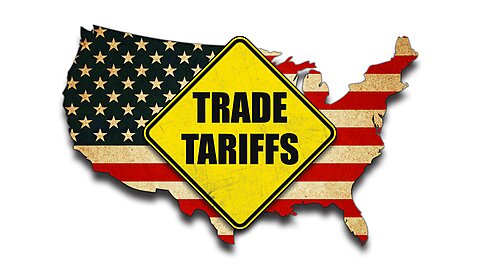Ahead of the Supreme Court’s ruling on whether the president can impose tariffs under the International Economic Emergency Powers Act (IEEPA)—oral arguments for which begin today—the administration has deployed a variety of odd and tenuous arguments in favor of granting the executive branch such authority. Perhaps the most imaginative White House claim is that denying the president’s ability to impose tariffs under IEEPA would leave the US on the hook for trillions of dollars. The removal of IEEPA tariffs, warns an administration legal filing, could “lead to financial ruin” given the country’s inability to “pay back the trillions that other countries have committed to pay.”
Such language presumably refers to financial pledges made by other countries under various “deals” concluded by the Trump administration. To avoid higher US tariffs, the European Union, for example, promised to purchase $750 billion in US energy and invest $600 billion in the United States. Japan has committed a further $550 billion as part of its own trade deal, while South Korea has pledged $350 billion.
But as an amicus brief submitted by the Cato Institute points out, there is no plausible legal or financial pathway by which these pledges could saddle the US government with debt.
First, the investment and purchase commitments announced by the administration are largely aspirational, remaining in the planning stages or not fully agreed upon. For example, South Korea was reported to have pledged $350 billion in investment and $100 billion in energy purchases. Yet no formal written agreement has been concluded, and South Korea’s president himself warned in September that commitments of such magnitude could risk financial instability.
Similarly, the administration has touted $600 billion in prospective European Union investments and $750 billion in energy purchase commitments. EU officials, however, have emphasized that these figures represent private-sector intentions, not binding government obligations. Japan provides the clearest case: a September agreement referenced $550 billion in funding for projects selected by the US government, and a Memorandum of Understanding has been completed. However, no projects have been identified; no expenditures have occurred; and no binding debt has been created. There is, quite simply, nothing to repay.
Subsequent reporting reinforces this assessment. The Japan Times, for example, noted that “no projects were finalized under Japan’s $550 billion investment pledge” during last week’s visit by President Trump. The publication added that while “two documents were issued that named companies, concepts, and targets,” they “[came] up short in terms of actual money being committed and actual projects being initiated.”
Similarly, the deal between the United States and South Korea was described by Trump as “pretty much finalized” last week—suggesting that perhaps not all of the t’s have been crossed and i’s dotted—and the agreement still awaits ratification by the South Korean legislature.
Two other points bear mentioning. First, even if the commitments made under these deals had begun to materialize, there is no reason to believe that these would represent US government liabilities. No public debt is created when foreigners invest in the United States or buy American products.
Second, previous statements by administration officials contradict its newfound alarmism about debt being created by foreign financial commitments. Again, from the amicus brief:
Finally, the administration’s own characterization of these commitments undermines the suggestion of debt. President Trump, for example, described the EU’s supposed $600 billion investment commitment as a “gift.” With gifts, of course, “there’s nothing to pay back.” Similarly, President Trump has likened Japan’s $550 billion commitment to a “signing bonus,” a term not typically understood to create debt.
The White House’s warning of a trillion-dollar crisis is a rhetorical Hail Mary that reflects the poor legal and economic footing of the IEEPA tariff program more broadly. If the best defense of unilateral tariff authority is an invented national debt, it’s no wonder lower courts have ruled against the administration—and that the Supreme Court has taken the case. Fearmongering about imaginary obligations does nothing to justify a legally dubious expansion of executive power.

